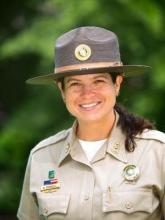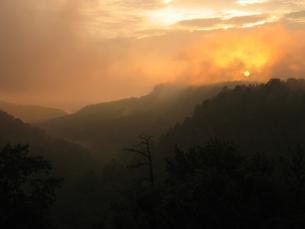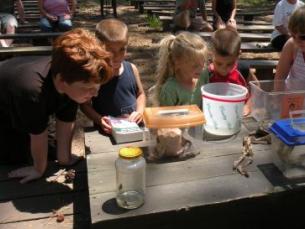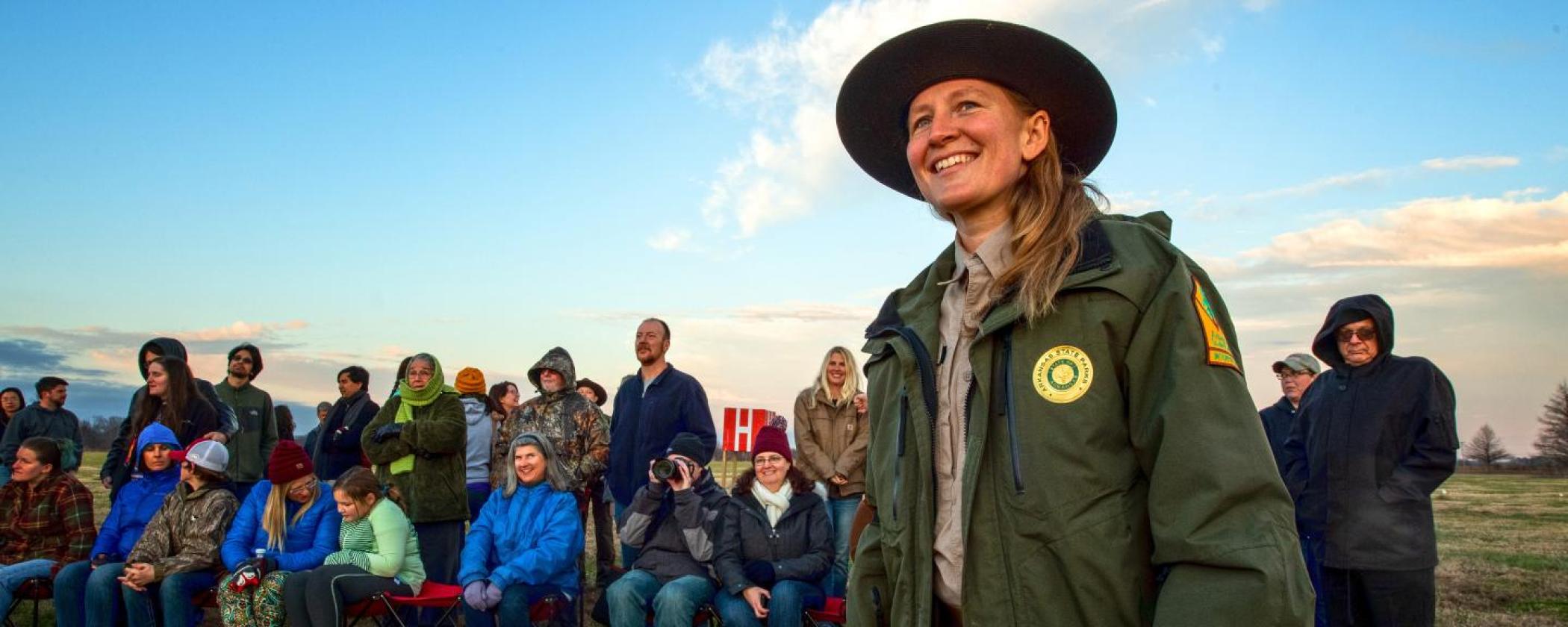
What is a Park Interpreter?
By: Kelly FarrellA goal all park employees share—from the most behind-the-scenes support staff to the top administrators—is to help make sure you have the best experience possible. We know your free time is valuable, and we want to help you make the most of your schedule while visiting our state parks.
We’d like to tell you more about one particular team of employees whose primary job function is to help you have fun. On ArkansasStateParks.com, our social channels, and here on this blog, you’ll often hear us mention our “park interpreters” who coordinate the parks’ “interpretive programs.” Many people aren’t sure exactly what we mean by that. Today, we’ll explain the role of a park interpreter.
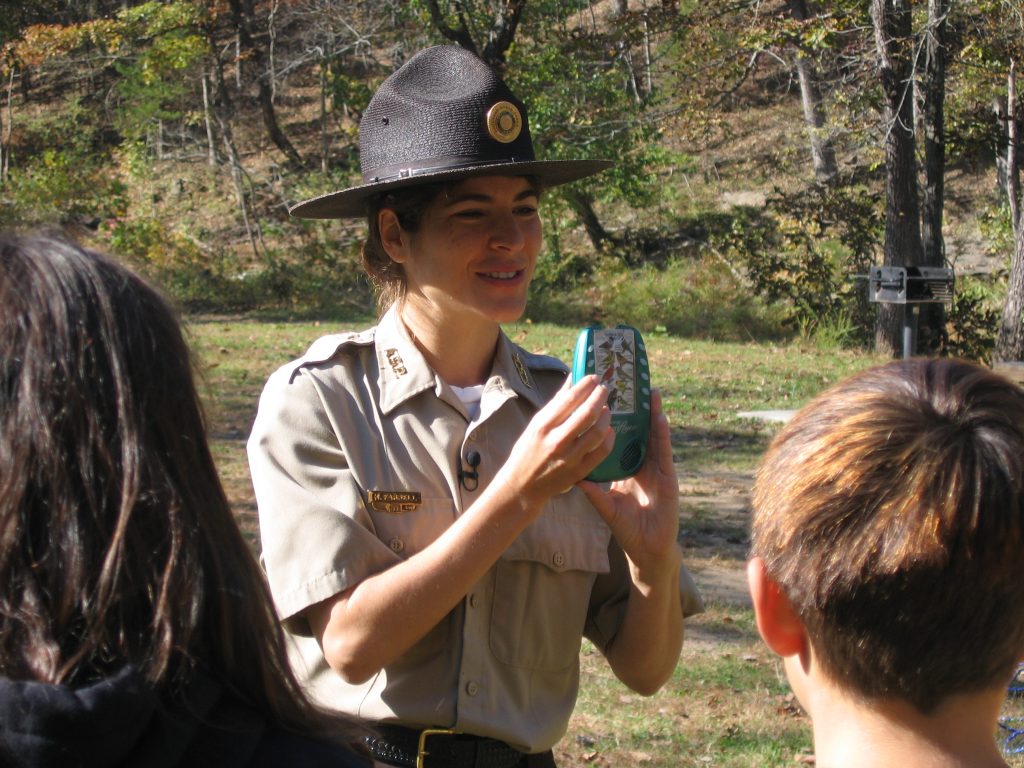
The most common question our interpreters in Arkansas State Parks are asked is “What languages do you speak?” It is a fair question. Most people are familiar with the term “interpreter” in the realm of translating spoken or sign languages.
When you meet an interpreter in a state park, though, he or she might be fluent in a language other than English, but translating languages is not a main job responsibility. Rather, it is to interpret the natural, historical, or cultural resources of the site for park visitors.
In simpler terms, an interpreter’s job is to help make your visit to the park meaningful. When you visit a park, there are always plenty of activities for you to do on your own. You can hike a self-guided trail, enjoy scenic overlooks, rent a boat to go fishing or wildlife watching, or just relax at your cabin or campsite.
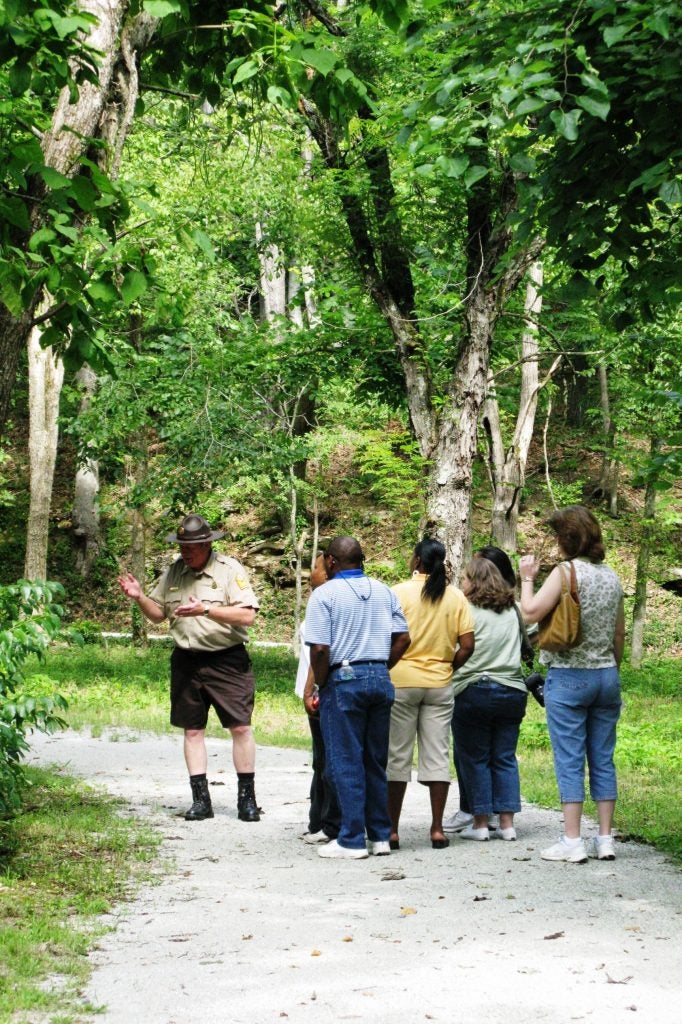
Imagine, though, walking that same trail with a park interpreter as your guide. This is someone who understands the history of the area, who knows land, who lives in the park day in and day out, 365 days a year. He or she is in tune with nature’s rhythms and is able to point out things you might miss, such as bird songs in the tree canopy above, signs of wildlife foraging in the area, or remnants of a historical homestead.
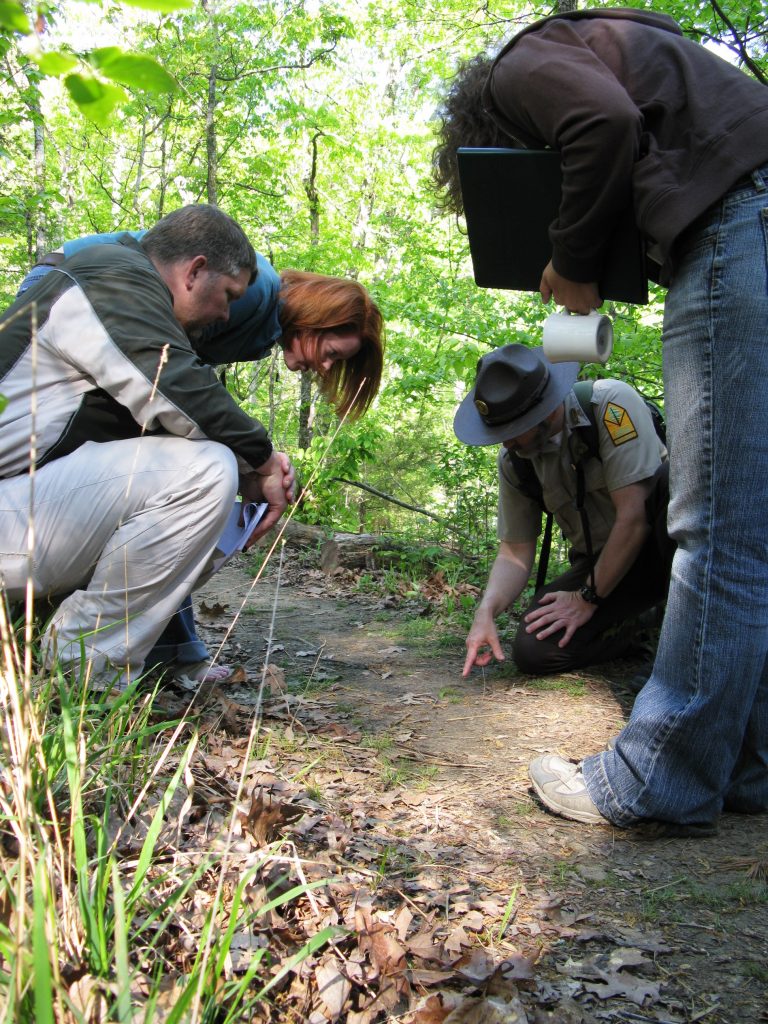
Interpreters are the employees responsible for planning, publicizing, and presenting the fun, interactive, and educational programs for which Arkansas State Parks are known. Activities vary by site, but if your family has ever taken a guided hike, lake cruise, or kayak tour…or if you’ve attended an evening owl prowl, amphitheater talk, or campfire…or encountered a living history character, nature craft workshop, or outdoor skills demonstration, chances are good it was the park interpreter who served as your leader and guide.
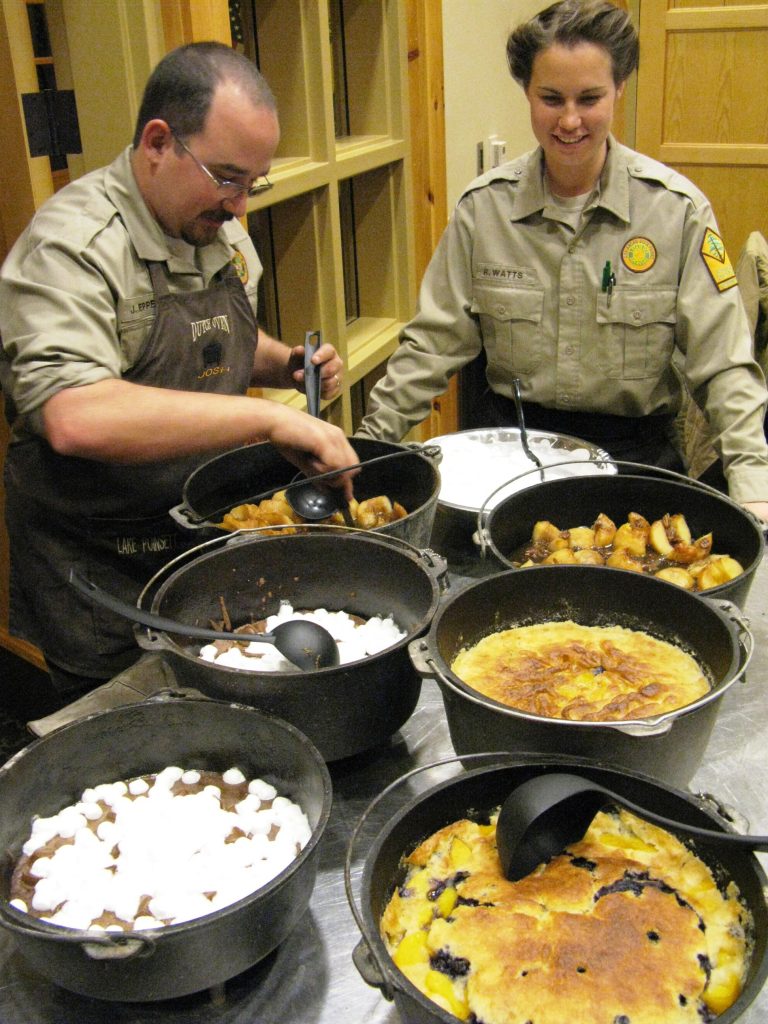
Many interpreters are specialists in several subjects, and from time to time they offer multi-day workshops allowing visitors an immersion learning experience in a safe, supervised atmosphere. These include kids’ day camps, weekend family camping adventures, kayak and canoe overnight trips, Dutch oven cooking workshops, and many more. In addition, it is often the park interpreters who research and write the brochures and exhibits you enjoy during your park visits.
Officially, our department uses the definition of interpretation adopted by the National Association for Interpretation, asserting that it is “a mission-based communication process that forges emotional and intellectual connections between the interests of the audience and the inherent meanings of the resource.” Or in everyday language, we say:
“Interpretation is communication that goes beyond facts to reveal what things mean, how they fit together, and why they matter.”
Some park systems, including the National Park Service, refer to interpreters as “rangers.” In Arkansas State Parks, we do have employees with the job title of “ranger” at many park locations, but their main duties are public safety, park security, and law enforcement. Our rangers and interpreters work as a team to educate visitors about how to enjoy the parks safely and protect the valuable resources of the area.
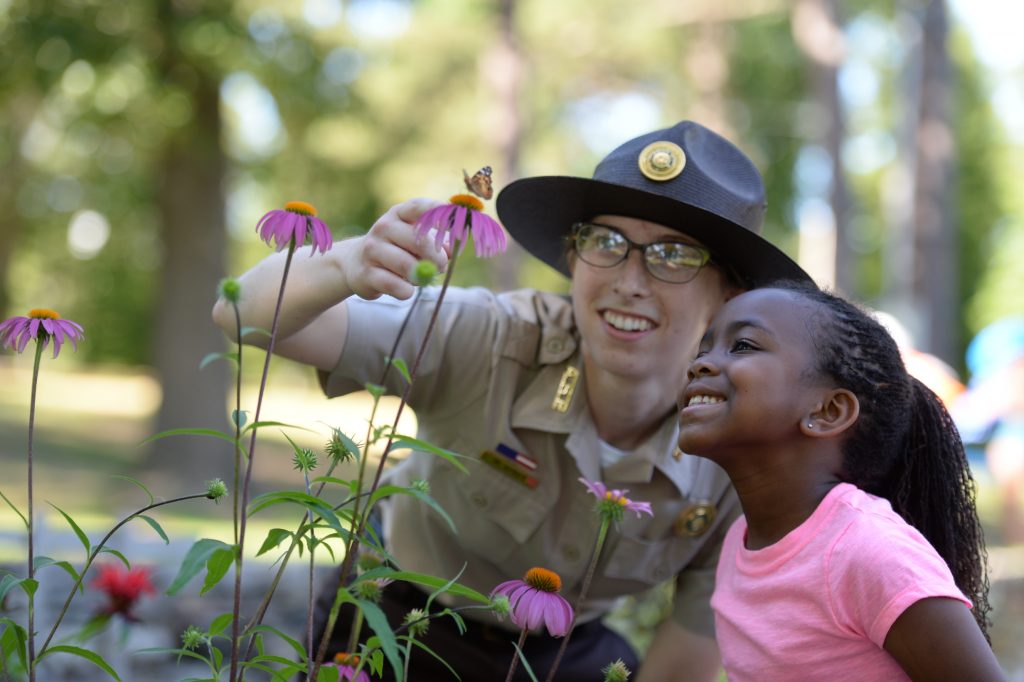
In Arkansas, the interpreter positions used to be called “naturalists.” Today, having naturalist skills is still a major part of their job descriptions; however, they do much more than just identify plants and wildlife. They are biologists, geologists, botanists, historians, educators, and recreation specialists.
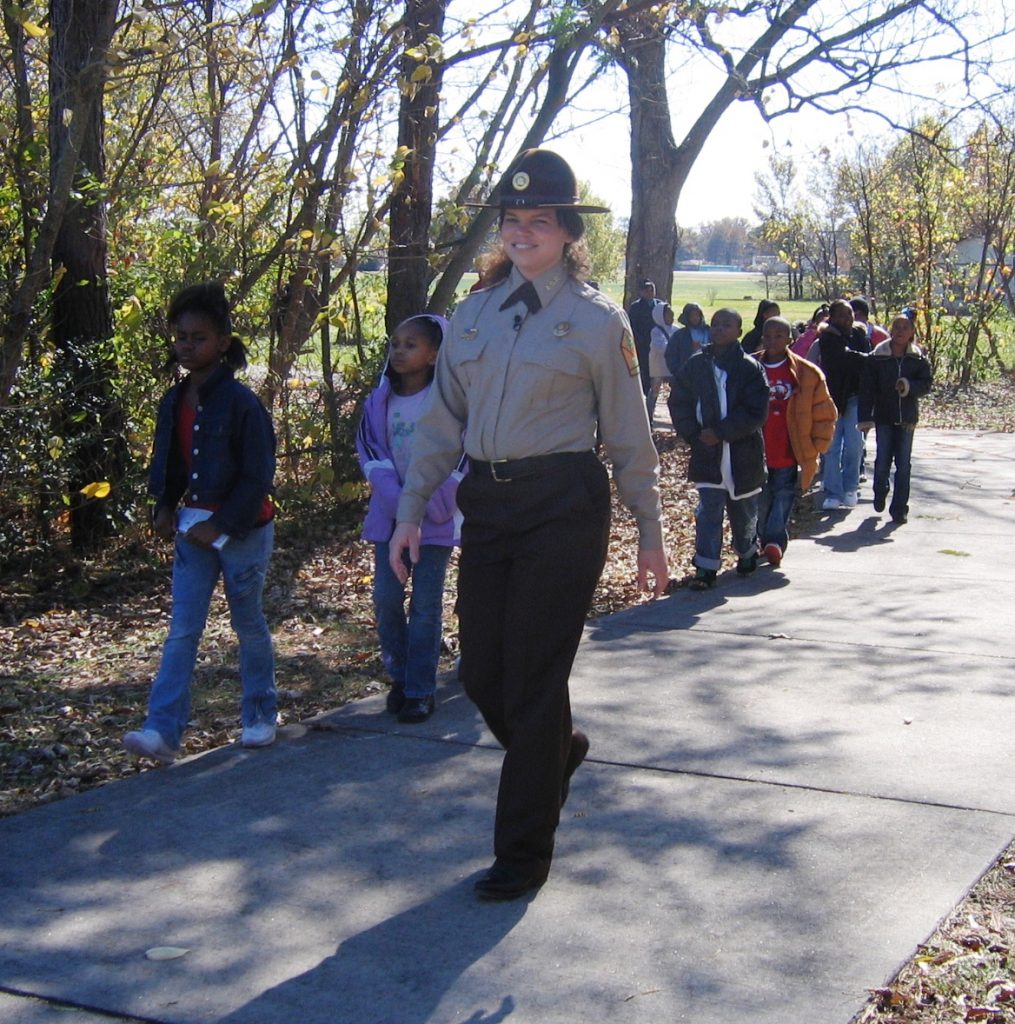
More importantly, they are communicators who encourage you to discover your own meanings in the parks. We believe that interpretation helps visitors better understand just how special our parks are. Through understanding, comes appreciation and protection of the parks so that we can remain here for generations to come.
All of our full-time park interpreters hold four-year degrees in a relevant major, such as biology, history, environmental science, park administration, communication, or education. Most also come to us with prior professional experience doing frontline interpretation in the field. Many begin their careers as seasonal, or part-time, interpreters while completing their college degrees.
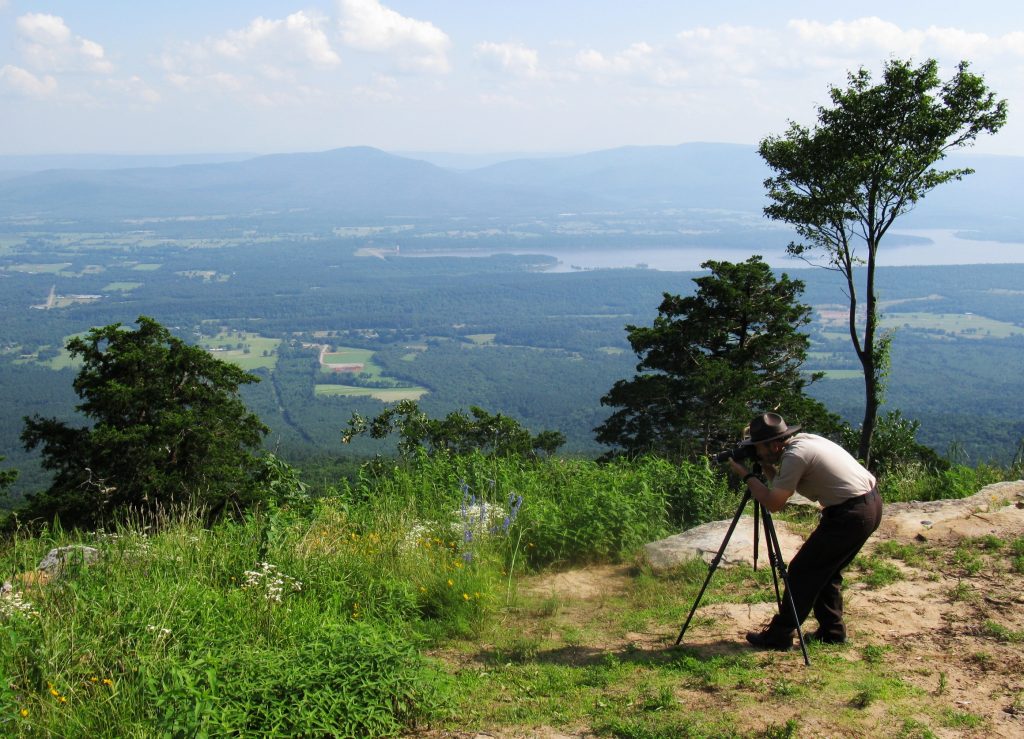
Interpreters are also encouraged to pursue credentials from the National Association for Interpretation, which is the recognized voice of the interpretive profession. Many have earned status as Certified Heritage Interpreters and/or Certified Interpretive Guides.
In addition, many complete specialized subject matter training from industry leaders. For example, we use the American Canoe Association’s standards for kayak training, and we use curriculum from the Leave No Trace Center for Outdoor Ethics for teaching camping and backpacking skills.
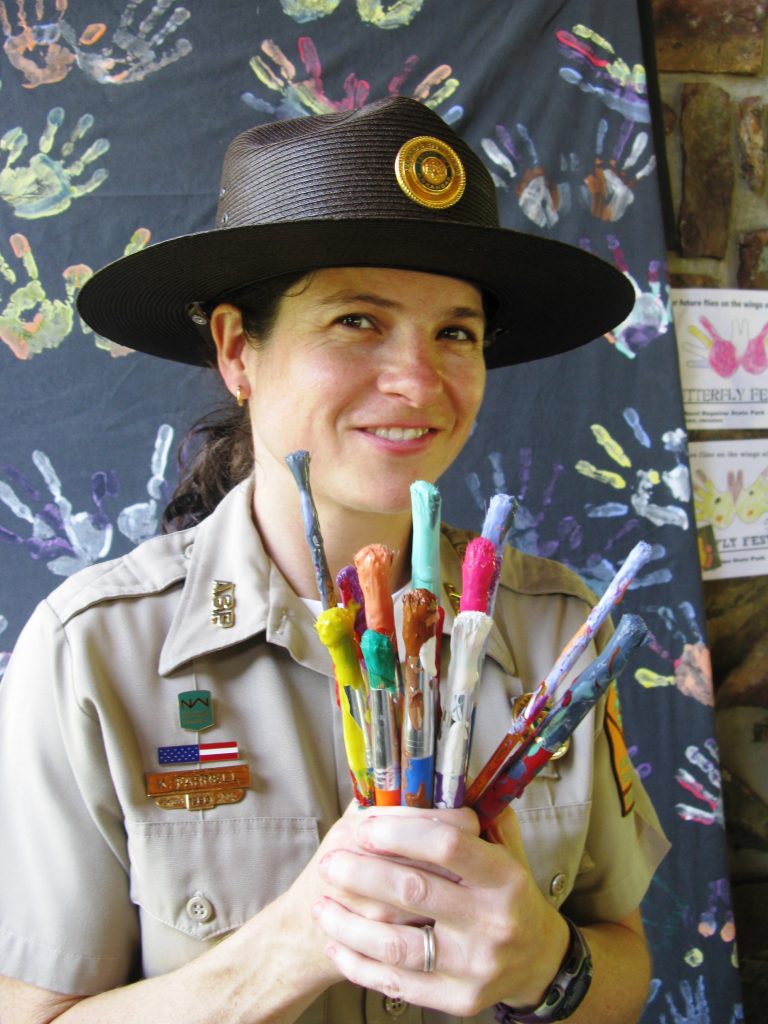
Park interpreters are passionate people. We love our parks and want you to love them too. I should know! I began as a seasonal interpreter in 1999 and have gladly made my career with Arkansas State Parks, now serving as chief of interpretation and program services.
We eagerly share our experiences and knowledge. We work hard, doing many things behind the scenes that you may never know about, to help put you in the right place at the right time to create wonderful memories. We help you have special experiences like a hike along a rugged mountain trail, a kayak tour in the morning mist, a nighttime forest walk with owls hooting overhead, or a trip back in time to cook in cast iron and imagine what pioneer survival was like.
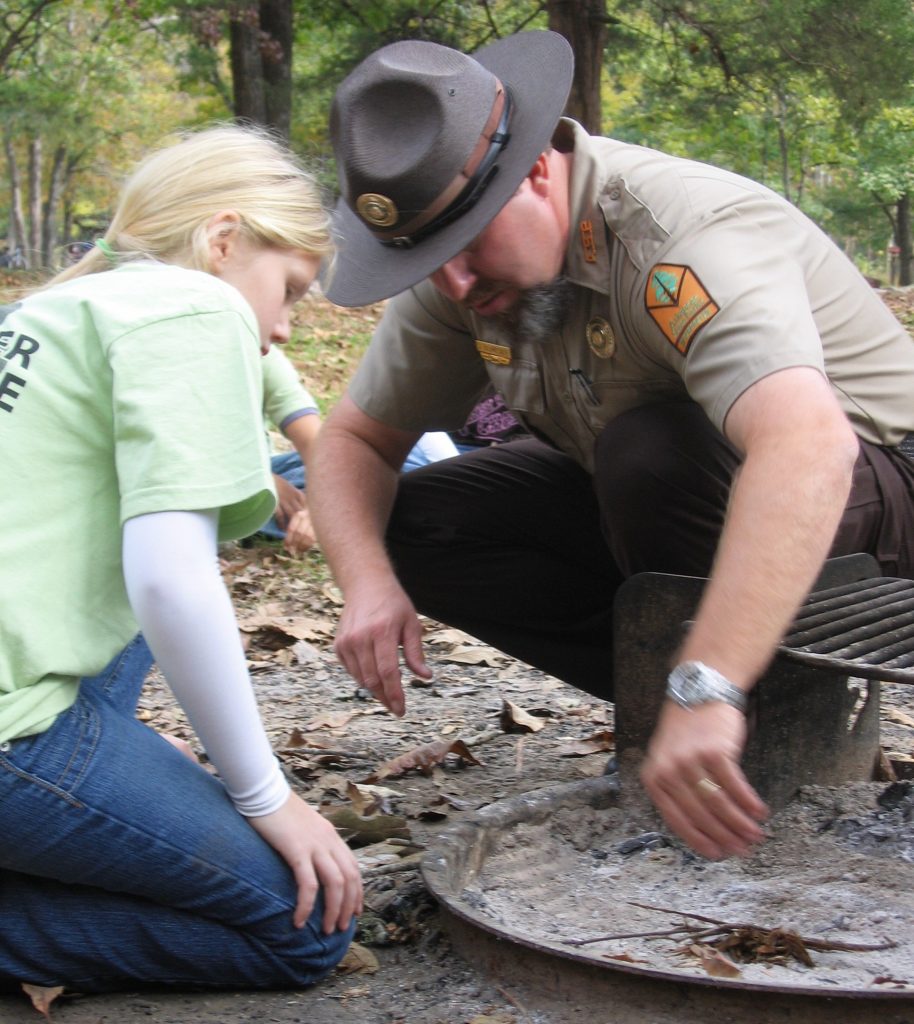
“It is really special to help a senior citizen see his first bald eagle in the wild, or to let a child light a campfire for the very first time or to see a family enjoy tasting food they made during an outdoor cooking workshop,” says Sarah Keating, superintendent at Lake Dardanelle State Park in central Arkansas. (She is also a former interpreter there and now serves as an interpretive manager and trainer). “It’s really special when our interpreters get to see the light bulb go on in a visitor’s head during a program…their face shows it…it’s when they have that ‘a-ha’ moment of ‘I get it, I understand that this place is complex and special and neater than I ever imagined.’”
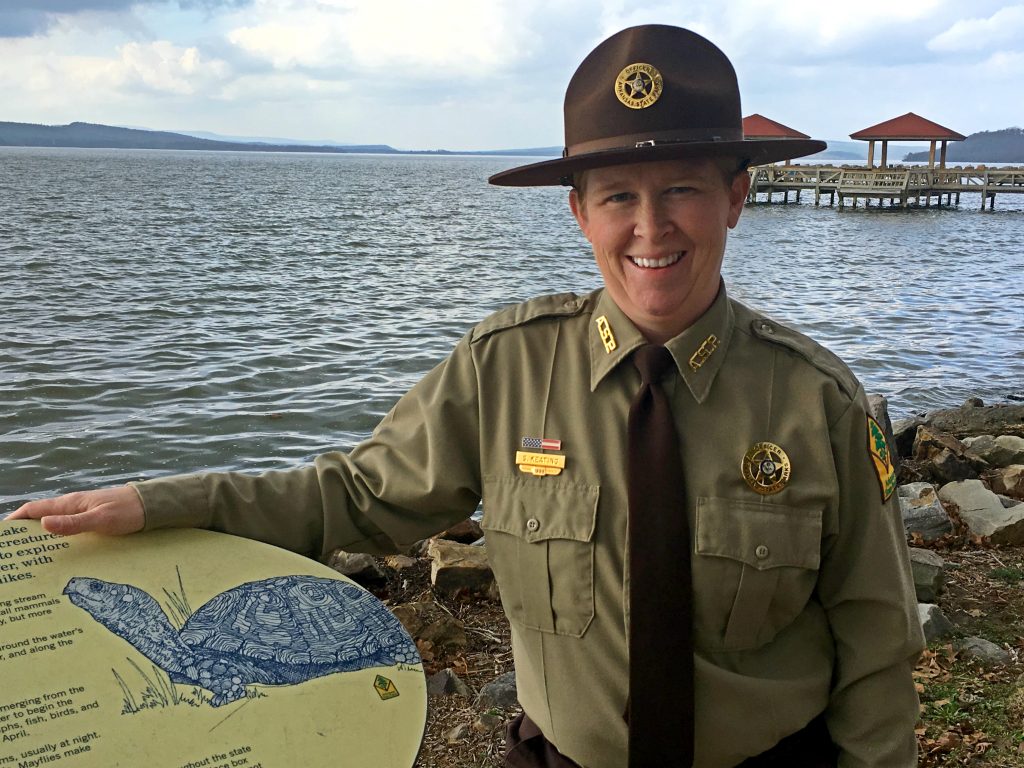
Sasha Bowles is a park interpreter at Lake Dardanelle State Park in Russellville. “Being an interpreter is like igniting a spark and watching the blaze of wonder grow. I have the privilege of doing that almost daily. Someone took the time when I was young to nurture the ‘wild’ child in me. Now I get to teach about and interact with our natural surroundings daily and nurture someone else’s ‘wild’ child.”
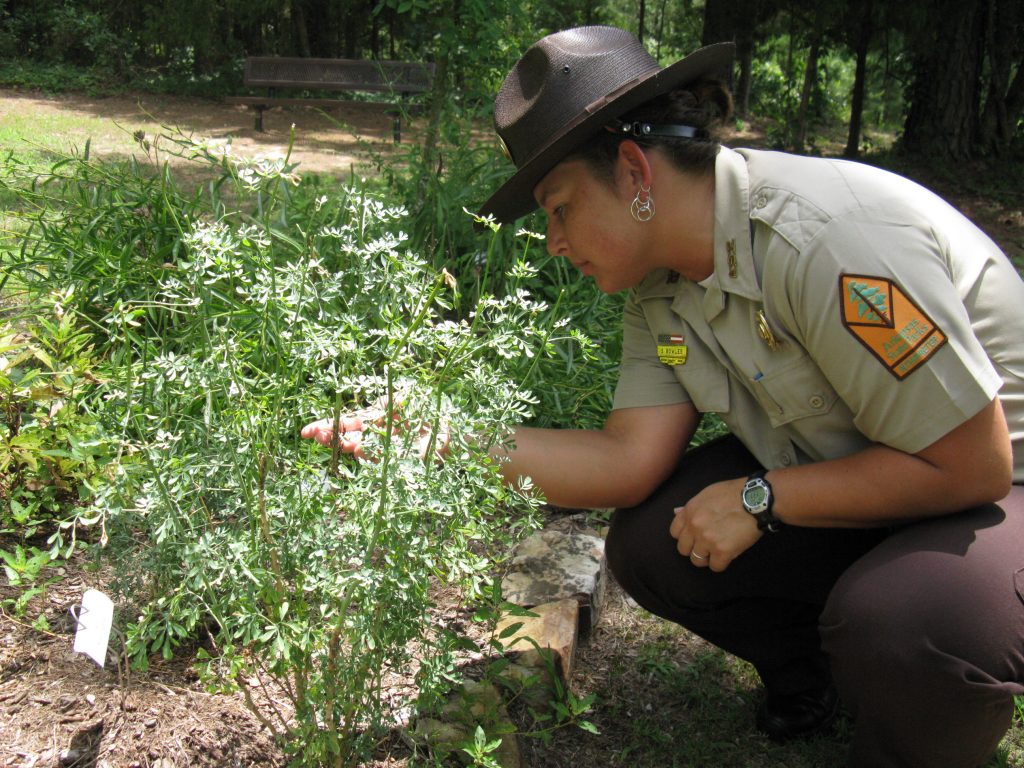
“It is the best job,” says Adam Leslie, stationed at Withrow Springs State Park in northwest Arkansas. “It really pushes me to use my education in fun ways.”
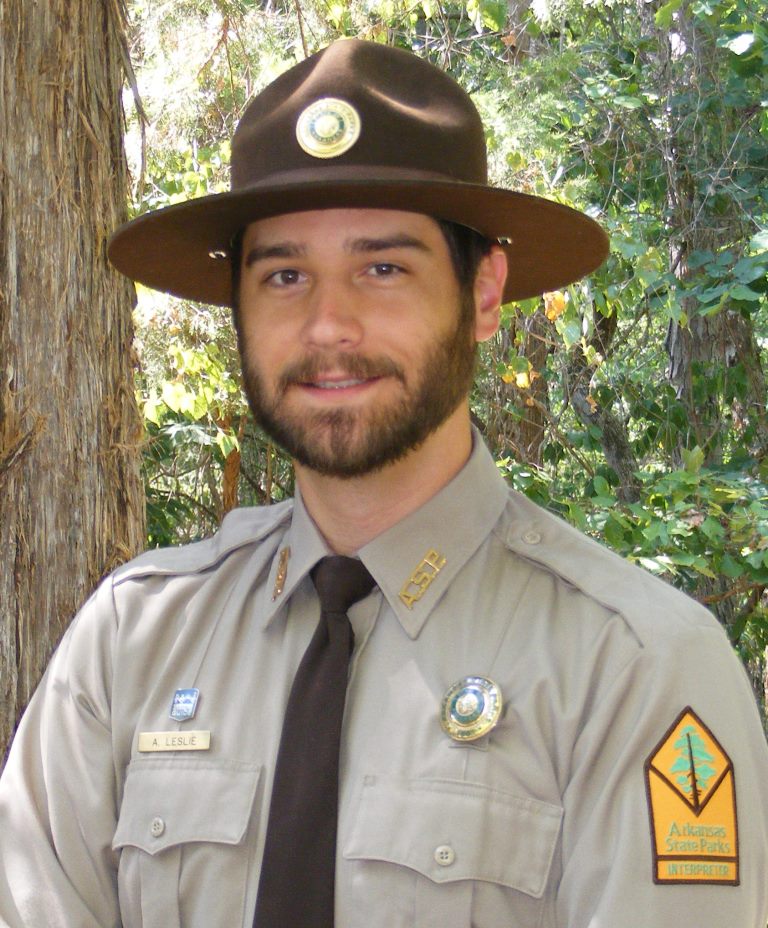
Interpretation is more than just leading you down a trail, though, or simply showing you how to do things. Park interpreters are trained to engage you in conversation, find out what you’re interested in, and relate to you in a way that sparks inspiration to know more.

Good interpreters reveal meanings and relationships in the world around them. They ask questions, encourage thoughtful reflection, and listen to the stories that visitors are eager to share. But they don’t stop there. The best interpreters take these emotional and intellectual connections one step further and provoke visitors to act on their newfound interests. This action could be as simple as attending another program (and bringing friends and family along) or as in-depth as joining the park’s “friends” group and becoming a loyal volunteer. Ultimately, we hope our visitors become more conservation-minded in the parks and in their daily lives at home.
“To many people, park interpreters are the ones who help them experience our parks in a very special and personal way."
"They tell our natural, cultural, and historic stories,” Arkansas State Parks Director Grady Spann says. “Their impact on our guests’ park experience is one of the reasons so many visitors return to our parks year after year. Their role in our parks speaks volumes about how effective they are in helping create and make lifelong memories. The park interpreter gives the park its voice.”
Our park interpreters routinely schedule programs designed to help you make memories of a lifetime. We offer over 40,000 family-friendly programs and events each year, including lake tours on park party barges, guided hikes, birding adventures, living history demonstrations, nature games, fall foliage programs, historic site tours, bald eagle watches, spring wildflower walks, campfires, outdoor skills workshops, and much more.
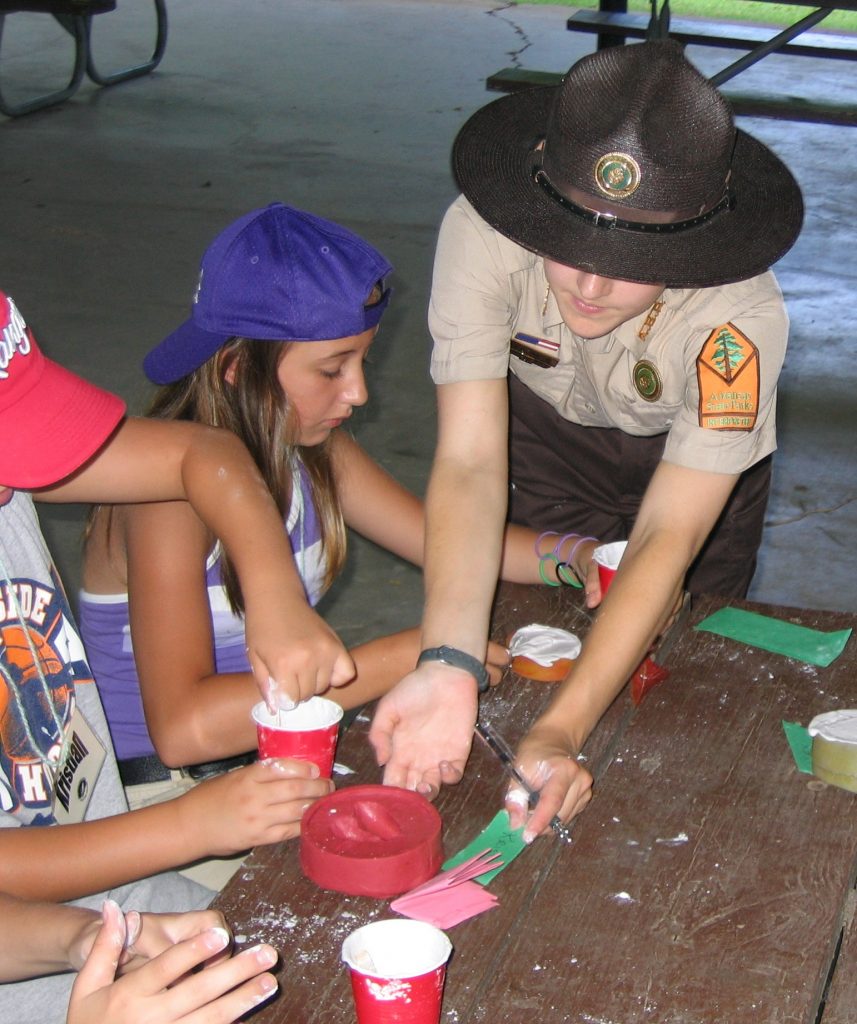
One way you can maximize your time while visiting an Arkansas State Park is to know in advance what our park interpreters have planned during your scheduled trip. Be sure to take advantage of our calendar of events.
